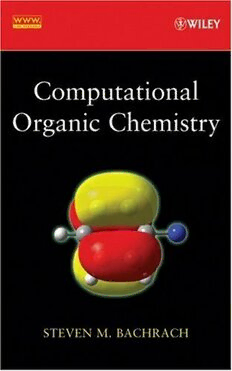
Computational Organic Chemistry PDF
499 Pages·2007·5.032 MB·English
Most books are stored in the elastic cloud where traffic is expensive. For this reason, we have a limit on daily download.
Preview Computational Organic Chemistry
Description:
[This book] collects together, largely for the first time, a series of chapters dedicated to all the ways in which molecular modeling/computational chemistry can impact organic chemistry.-Christopher J. Cramer, author of Essentials ofComputational Chemistry: Theories and ModelsComputational Organic Chemistry provides a practical overview of the ways in which computational modeling methods and applications can be used in organic chemistry to predict the structure and reactivity of organic molecules. After a concise survey of computational methods, the book presents in-depth case studies that show how various computational methods have provided critical insight into the nature of organic mechanisms. With a focus on methodologies, this unique resource:*Discusses simple molecular properties, pericyclic reactions, carbenes and radicals, anion chemistry, solvent effects, and more*Features sidebars that offer a personal look at some of the leading practitioners in the field*Conveys the strengths and limitations of each method, so that readers develop a feel for the correct "tool" to use in the context of a specific problem*Further informs readers with a supporting Web site that provides links to materials cited and features a blog that discusses and provides links to new relevant articles at www.trinity.edu/sbachrac/coc/This is a great reference for practicing physical organic and computational chemists, as well as a thought-provoking textbook for graduate-level courses in computational chemistry and organic chemistry.
See more
The list of books you might like
Most books are stored in the elastic cloud where traffic is expensive. For this reason, we have a limit on daily download.
